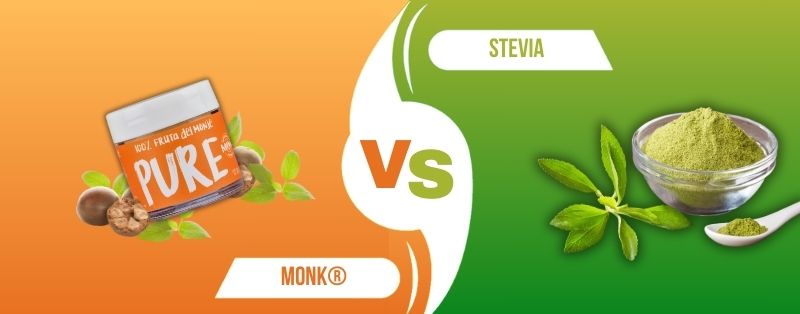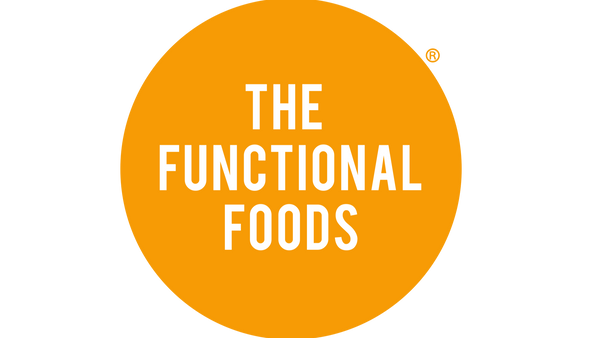
Stevia vs. Monk®️: Which one to choose and why Monk®️ is the best option?
Share
In a world where concern about health and diet is constantly increasing, the search for healthier alternatives to sugar has become a priority. Two of the most popular options that have emerged in recent years are stevia and monk fruit. These natural zero-calorie sweeteners have gained traction in the low-carb and ketogenic diet market. But which of them is the best option and why could monk fruit be the best choice? Let's explore the differences of both sweeteners.
Processing and composition
One of the first notable differences between stevia and monk fruit is in the production process and composition of the products available on the market. Stevia is often highly processed and mixed with other ingredients such as dextrose (corn sugar), molasses, inulin fiber, or even cane sugar to improve its flavor and ease of use in cooking. This can be a problem for those looking for a truly sugar- and calorie-free alternative, as these additives can increase the calorie content and affect blood sugar levels.
On the other hand, monk fruit tends to be less processed and is usually found in pure extract form or in combination with other natural sweeteners. This makes it a more attractive option for those who want to avoid any unwanted additives and keep their ketogenic diet in line.
Impact on blood sugar levels
One of the main reasons why monk fruit stands out as a better option compared to stevia is its impact on blood sugar levels. Monk®️ does not affect them, making it a safe and suitable alternative for people with diabetes. This is crucial, since, for diabetics, maintaining control of blood sugar levels is essential.
Additionally, Monk®️ has a pleasant, non-bitter taste compared to some artificial sweeteners and sometimes stevia itself. This makes Monk®️ a more palatable choice for those looking for a sweet tasting experience without compromising on taste.
Calorie content and sweetness
Both are calorie-free sweeteners, which means they do not provide empty and unnecessary calories to the body. However, Monk®️ stands out for being considerably sweeter than cane sugar, meaning less is needed to achieve the same level of sweetness as stevia. This can be beneficial for those who want to reduce their sugar intake and maintain a sweet taste without adding a large amount of sugar substitute.
FDA approval and tolerance
It is important to mention that, although monk fruit and stevia have similar health benefits, only monk fruit has been officially approved by the United States Food and Drug Administration (FDA). This approval can provide greater confidence in its safety and use.
Also, in terms of tolerance, it is presumed that the body has a better response to monk fruit compared to stevia. Many people have reported experiencing digestive discomfort with this plant, which could be attributed to the additives and processing mentioned above.
In short, both stevia and monk fruit are viable alternatives to cane sugar and other natural sweeteners, and are suitable for the ketogenic diet. However, Monk ®️ stands out as a superior option due to its less processing, lack of impact on blood sugar levels, pleasant flavor, and greater sweetness compared to stevia. In addition, having FDA approval and being better tolerated by the body, support its choice as a preferred sweetener. Ultimately, the preference between these two sweeteners will depend on your personal tastes and specific dietary needs, but Monk ®️ presents itself as a solid and healthy option when looking for alternatives to refined sugar.

1 comment
El artículo es muy interesante y de gran utilidad